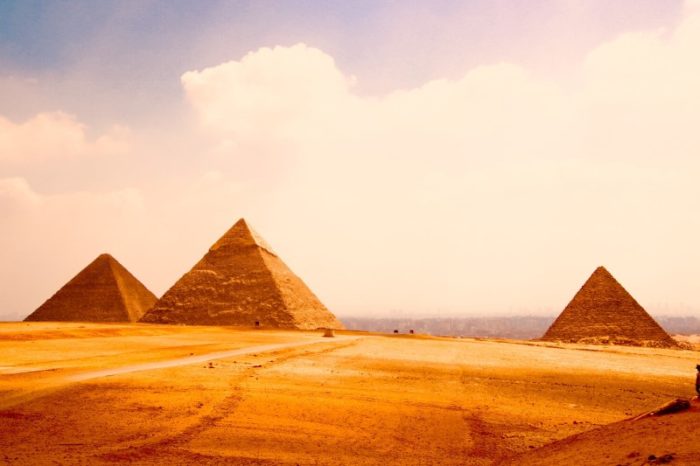Egypt, the Hyksos, and the People of Israel
Many people have not heard of the Hyksos before. The Hyksos are not mentioned in Scripture, but there are many times in Scripture where knowing the historical background helps one understand what is going on in the text. Such is certainly the case in Exodus 1, where we are told rather abruptly that a Pharaoh arose over Egypt that “did not know Joseph” (Exod 1:8).
Although it is possible that this could actually be a reference to a Pharaoh not having any historical knowledge of how the Israelites came to be in Egypt, that seems highly unlikely. Rather, the concept of “knowing” in the Hebrew Bible often will carry with it a relationship component (cf. Gen 4:1; 18:19). If such is the case here, then the point is that a Pharaoh arose over Egypt who did not wish to be friendly to the Israelites as the Egyptians had in the past.

It may seem somewhat random or inconsistent that Egypt would suddenly pivot from the friendly posture which was portrayed from Genesis 41–50. But, the historical background of the Hyksos gives insight into why this might be.
The Hyksos: a Semitic People
We know that Jacob and his family entered Israel in 1876 BC. About 100 years later, a people known as the Hyksos invaded Egypt and held significant power in Lower Egypt from 1720 to 1570 BC. The Hyksos capital of Avaris was a thorn in the side of the Egyptians for many years, until Amosis (1570–1546 BC) or his successor finally pushed them out of Egypt, solidifying Egypt as a major military power.
It is widely acknowledged that the Hyksos were Semitic in origin, and therefore likely looked like the Hebrews. They also would have spoken a language that would have had great resemblance to Hebrew, making communication between the two groups natural. Additionally, the Hyksos were known as shepherds, an occupation which was despised by the Egyptians but enjoyed by the Israelites (Gen 46:34). Although Scripture does not note the presence of the Hyksos people in Egypt while Israel was there, knowing these details helps make sense of the Egypt’s fear that Israel could join with Egypt’s enemies (Exod 1:9-10).
The Hyksos backdrop helps us understand the initial phases of Israelite oppression. From that point on, things get worse as Egypt puts taskmasters over the Israelites, forcing Israel to work as slaves constructing some of the major Egyptian cities (Exod 1:11). However, because the oppression did not limit Israel’s population growth, Egypt instituted a policy of killing male children (Exod 1:15-16). It is likely that this genocide policy was instituted by Thutmose I (1526–1512). Yet, this attempted policy did not work and Israel continued to thrive and prosper (Exod 1:20). So Egypt continued to oppress the people until God heard their painful cry and saved them (Exod 2:23-25).
Thus although Israel originally enjoyed favor with Egyptian rulers (Gen 41–50), because of the existential threat of the Hyksos, the Egyptians began to oppress the Israelites in order to keep them from becoming a powerful ally to the Hyksos. When this initial strategy failed, Egypt continued to oppress the Israelites until eventually the Lord delivered His people.
Note: For more information on issues like this and others, see Eugene Merrill, Kingdom of Priests, which is an excellent historical background to Israel’s history.
2 Comments
Jeff Parker
When exodus claims that the Israelites built Pi Ramesses could that refer to an extension of Avaris and that the writer of Exodus was only referring to the name of the city which was being used at that time?
Peter Goeman
That is possible, but if Moses is the author, then less likely (since probably not enough time would have passed). Some scholars have proposed that a later prophet updated the text to reflect the current name of the city (possible), but Gleason Archer has also shown that the name Ramses was already in use in some Egyptian texts during that time. So, not impossible that the city was named Ramses even before Ramses II.